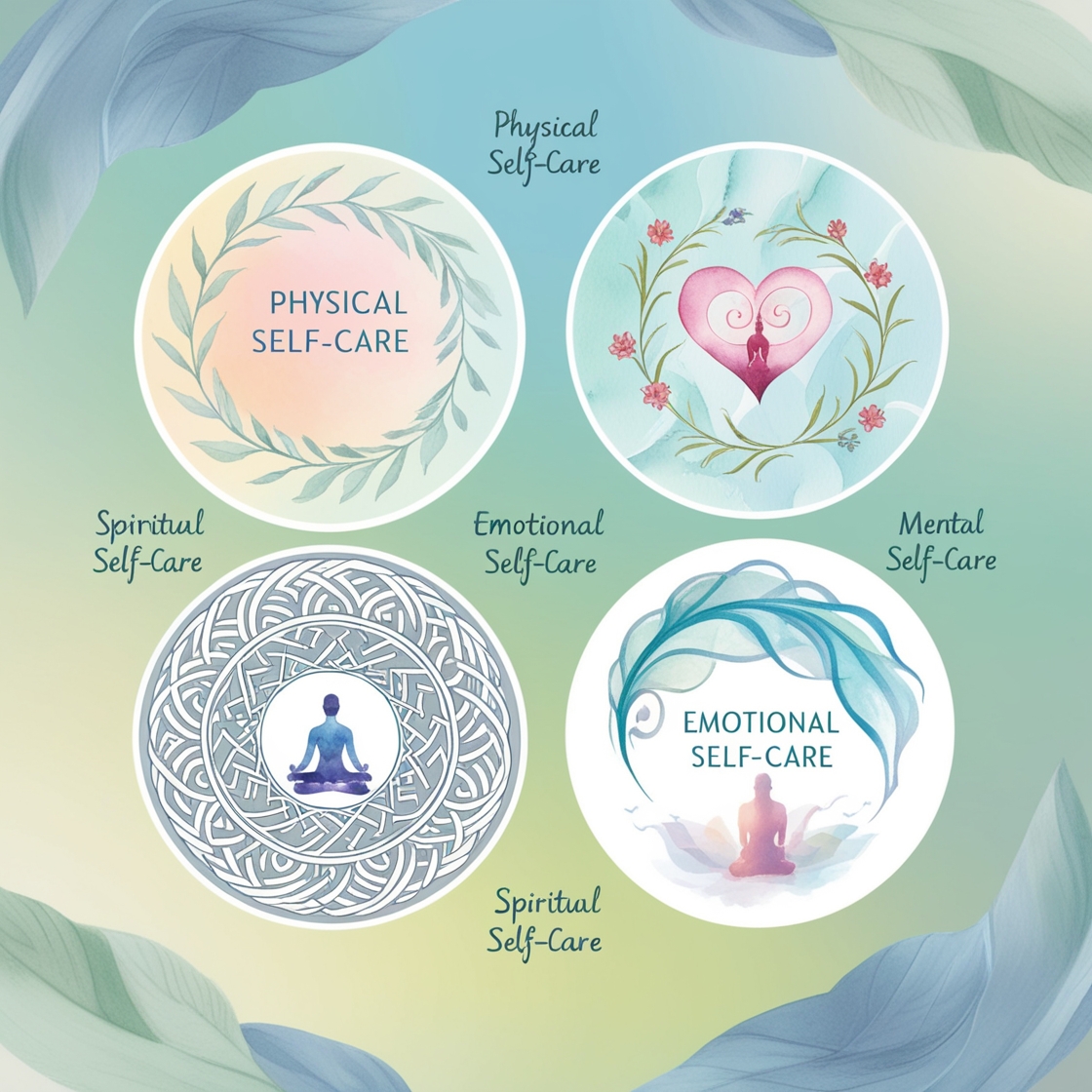Self-care is an essential practice that involves intentional acts to preserve and enhance your physical, mental, and emotional well-being. In today’s fast-paced world, self-care is crucial for maintaining well-being and preventing burnout. This article discusses the significance of self-care, different self-care practices, benefits, challenges, and how to integrate it into daily life.
What is Self-Care?
Self-care is the activities and practices that people engage in on a daily basis to reduce stress and enhance well-being. This is a wide range of activities from physical health maintenance, emotional support, and mental rejuvenation.
Types of Self-Care
- Physical Self-Care: Involves activities that improve physical health.
- Emotional Self-Care: Involves practices that help manage emotions.
- Mental Self-Care: Involves activities that stimulate the mind and reduce stress.
- Spiritual Self-Care: This refers to those activities that nourish the soul, giving a sense of meaning and purpose.
Types of Self-Care and Examples
| Type | Examples |
| Physical Self-Care | Exercise, nutrition, sleep |
| Emotional Self-Care | Journaling, therapy, setting boundaries |
| Mental Self-Care | Reading, puzzles, mindfulness |
| Spiritual Self-Care | Meditation, prayer, nature walks |
Facts and Figures
- Increased Productivity: Daily self-care can increase productivity by up to 20%.
- Stress Reduction: Self-care can be demonstrated to reduce stress by up to 30%.
- Better Health: People with self-care are 50% more likely to have better health.
- Improved Mental Health: 75% of the people are reported to have better mental health that regularly practice self-care
Importance of Self Care
Self-care is an essential feature that maintains a balance of life. It prevents burning out, reduces anxiety, and depression and promotes the healthy lifestyle. Through self-care, one can enhance resilience and ability to handle stresses.
Benefits of Self-care
- Physical Health: Healthy nutrition and exercise help enhance the physical health.
- Mental Health: Meditation and mindfulness help improve the mental health.
- Emotional Health: Journaling and therapy help manage the emotions.
- Productivity: Doing things, one enjoys and taking time off helps increase concentration and productivity.
- Relationships: Self-care helps people recharge and, therefore, be more present with others.
Pros and Cons of Self-Care
Pros
- Wellness: With regular self-care, one is able to improve his overall wellness.
- Reduce Stress: Self-care reduces the stress and anxiety.
- Improved Health Outcomes: Betterment of both physical and mental conditions.
- Improved Productivity: Concentration and effectiveness.
- Good Relationships: More balanced and healthier relationships.
Cons
- Time Consuming: Self-care requires time that may sometimes be difficult to find.
- Initial Costs: Some self-care may incur some initial costs. For instance, gym memberships or therapy sessions.
- Selfishness: Self-care is perceived to be selfish or indulgent by others.
- Maintaining Consistency: The maintenance of a self-care routine is not very easy.
How to Practice Self-Care
1. Physical Self-Care:
- Exercise: Walk, run, or do yoga daily.
- Nutrition: Balanced diet that includes fruits, vegetables, and lean proteins.
- Sleep: 7-9 hours of quality sleep per night.
2. Emotional Self-
- Care: Journaling: Write down thoughts and feelings to process.
- Therapy: Seek professional help with emotional challenges.
- Boundaries: Healthy boundaries protect the well-being of your emotions.
3. Mental Self-Care:
- Mindfulness: Reduce stress by doing mindfulness or meditation.
- Reading: Read books or articles that stimulate your mind.
- Hobbies: Do hobbies that you enjoy and challenge your mind.
4. Spiritual Self-Care:
- Meditation: Take time to meditate or pray to connect with your spiritual side.
- Nature: Take time in nature to rejuvenate your spirit.
- Purpose: Do activities that give you a sense of purpose and fulfillment.
Self-Care Activities and Benefits
| Activity | Benefits |
| Exercise | Improves physical health, boosts mood |
| Journaling | Helps process emotions, reduces stress |
| Meditation | Enhances mental clarity, reduces anxiety |
| Reading | Stimulates the mind, provides relaxation |
| Therapy | Provides emotional support, aids in healing |
| Nature Walks | Rejuvenates spirit, promotes relaxation |
Challenges in Practicing Self-Care
- Time: Schedules may keep one busy and deny space for self-care.
- Money: Financially, some self-care actions may cost.
- Guilty: Shame of taking time to rest.
- Awareness: Lack of knowledge to implement self-care properly.
Overcoming Challenges
- Time management: Treat self-care action as any other important event.
- Free choices: Home exercises or free resources available on the net.
- Attitude change: Self-care is not selfish, but rather an important element of total well-being.
- Awareness: Aware of how other self-care methods may best suit you.
Conclusion
Essential self-care practice needs to be preserved for one to maintain the overall wellbeing. The practice of self-care has the potential of enhancing daily life and improving physical, mental, or emotional health. As long as done well, the benefits weigh far and above the hurdles. Results of self-care priorities produce a more productive, balanced, and fulfilling life.
FAQs
Q: What is self-care?
A: The activities and practices taken up by people are meant for the maintenance and enhancement of one’s health and wellbeing.
Q: Why do we need self-care?
A: Self-care helps prevent burnout and reduce stress levels, while keeping a person generally healthy.
Q: How can I care for myself?
A: There are many ways, but some of them include exercises, journaling, meditating, and spending time with loved ones.
Q: Is self-care selfish?
A: No, self-care is required to preserve your health, which would further help you care for others.
Q: Does self-care increase productivity?
A: Yes, regular self-care increases concentration, minimizes stress, and thus maximizes productivity.
Q: What are some inexpensive self-care activities?
A: Home exercises, writing a journal, meditation, and taking time in nature are some inexpensive self-care activities.
References
- World Health Organization (WHO)
- National Institute of Mental Health (NIMH)
- Mental Health Foundation
- American Psychological Association (APA)
With the integration of self-care into your daily activities, you are improving your health, reducing stress, and becoming a more meaningful person. As a matter of fact, taking care of yourself first is the key to taking care of others.

